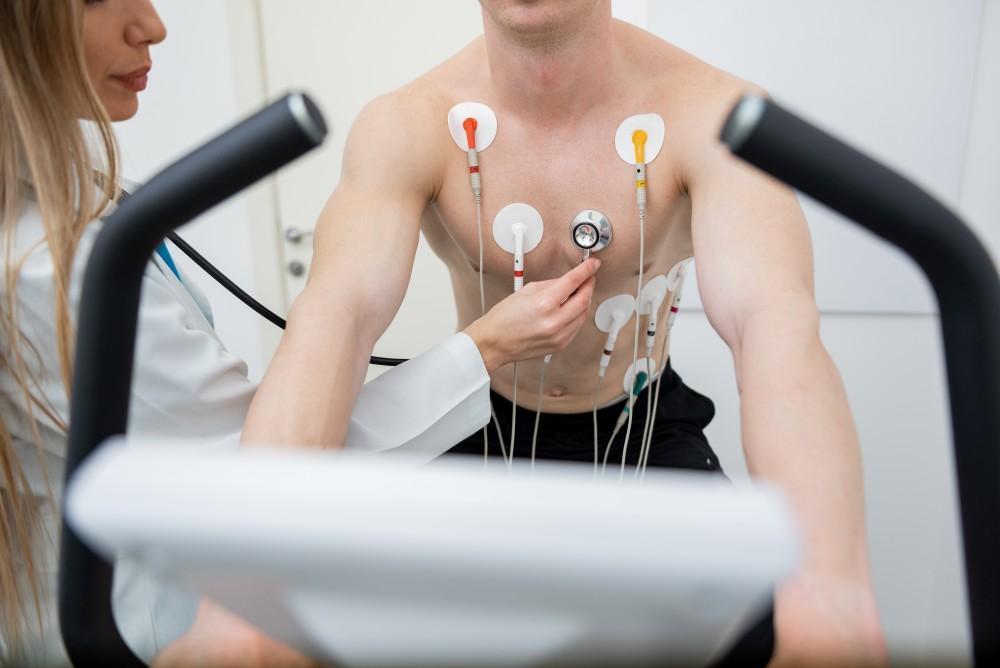
Can Anxiety Cause Heart Problems?

The relationship between depression and heart disease has been studied for decades. This relationship is a “two-way street” in which depression can exacerbate heart disease and vice versa. But what about anxiety? Can anxiety disorder create the same type of heart problems as depression?
As a board-certified cardiologist, Dr. Henock Saint-Jaques and his team of cardiologists at Harlem Cardiology in East Harlem, New York, know that the relationship between anxiety and heart problems can be complex. Anxiety, for instance, can cause chest pain, and many people experience chest pain as a symptom of panic attacks.
Below, Dr. Saint-Jaques explores this topic in more detail.
Can anxiety cause heart problems?
The short answer is yes. According to multiple studies, anxiety increases the risk of developing heart disease and having a heart attack or stroke.
Anxiety is a group of mental health disorders, including generalized anxiety disorder, panic disorders, and post-traumatic stress disorder (PTSD). Anxiety produces mental symptoms, such as fear and avoidance, but it also produces physical symptoms. Physical symptoms caused by anxiety include:
- Stomach upset
- Shaking
- Headaches
- Rapid heart rate (tachycardia)
- Increased blood pressure
In short-term cases, anxiety affects the heart for good reason. Your body’s natural response to perceived danger is to increase your heart rate and blood pressure to help you fight the danger or flee the dangerous situation. This is all part of the flight-or-fight response. This is helpful in dangerous situations, such as encountering a rabid dog while out on a jog.
The problem arises when anxiety puts you in a chronic state of flight-or-fight, even if there aren’t any real dangers to flee from or fight. Over time, chronic anxiety leads to chronic tachycardia and chronic high blood pressure. Untreated blood pressure can increase your risk of serious cardiac events, such as heart attacks and strokes.
Heart problems can cause anxiety
The reverse is also true: Heart problems can cause anxiety. For example, if you’ve had a heart attack, you might worry that you’ll have another one. You may even develop PTSD from a heart attack. If you suspect you’ve developed PTSD, don’t hesitate to ask for help. You may benefit from therapy or support groups.
What can you do if you have anxiety?
The good news is that both anxiety and heart problems are treatable, and exercise is one of the things you can do for both anxiety and heart problems. Exercise boosts coronary circulation, reduces cortisol, improves your mood, and lowers blood pressure. Other lifestyle modifications that help treat both anxiety and heart conditions, include:
- Practicing good sleep hygiene
- Managing stress
- Eating well-rounded meals
If you don’t have heart problems, you can reduce your risk of developing them by managing your anxiety, attending therapy, and taking medication, if directed.
Treating heart problems when you first spot the symptoms
If you already have an underlying heart condition, talk with Dr. Saint-Jacques if you have any concerns about your anxiety affecting your heart health.
To schedule an appointment at our Madison Avenue office, call us at 646-381-2181. Or, you can request an appointment online any time day or night.
You Might Also Enjoy...


Is It Possible to Lower My Blood Pressure Naturally or Do I Need Medicine?

What You Can Do Now to Prevent a Stroke Later in Life

3 Noninvasive Tests That Measure the Health of Your Heart

What Can I Do About My Varicose Veins?


